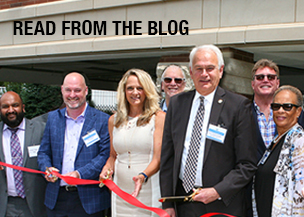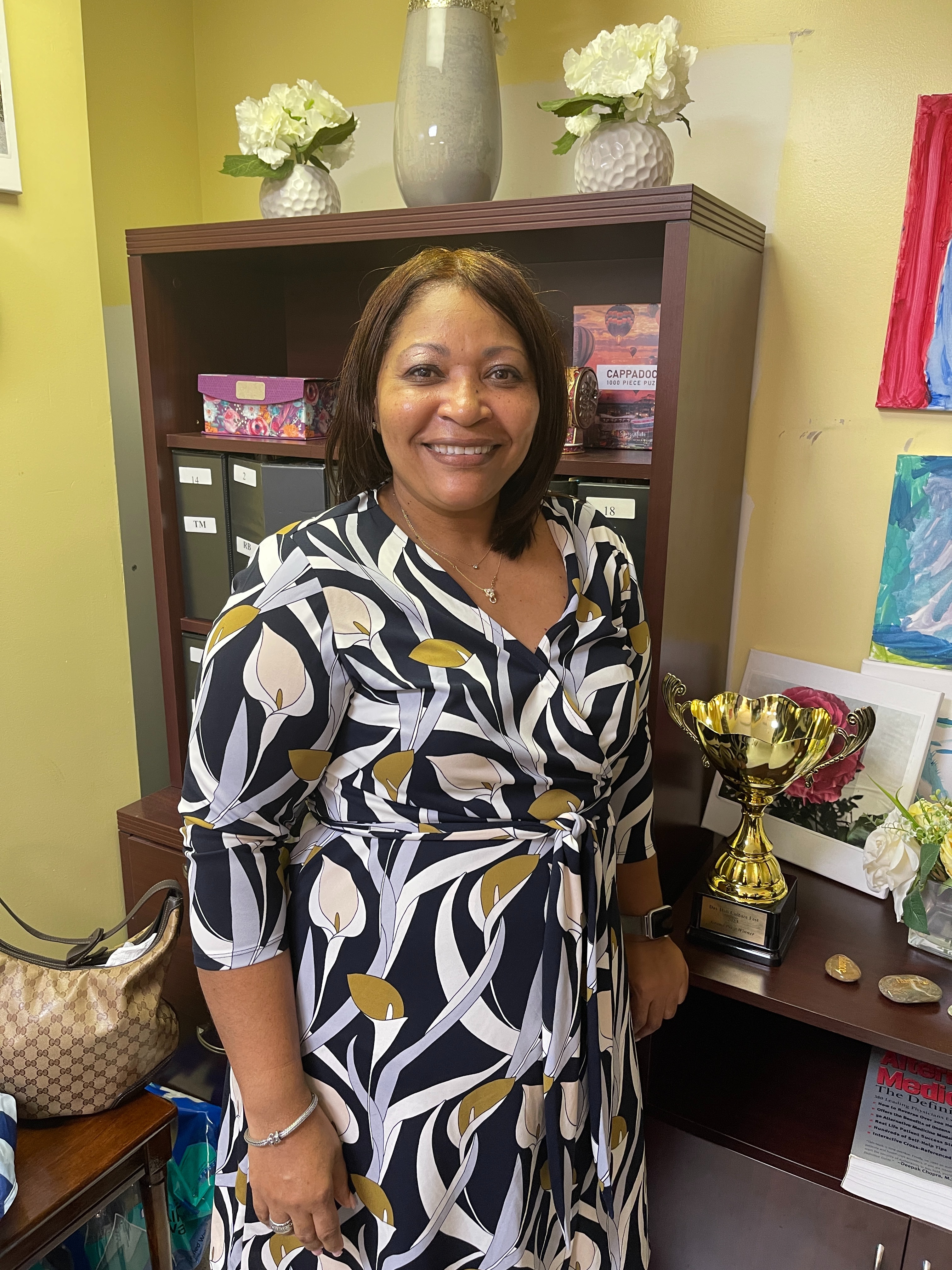
This is Jennifer. She is the Program Director for Day Habilitation Services and Residential Services. She has been at WellLife Network for almost 25 years.
Jennifer began her journey at WellLife as a Direct Care Coordinator, now known as a Direct Support Professional (DSP). A DSP cares for and assists individuals with intellectual and developmental disabilities in their day-to-day lives with tasks such as grooming, feeding, ambulation, medical monitoring, and healthcare-related tasks. “The first day here, I knew it would be plenty of work. I said to myself, ‘Okay, it is going to be a long day, but if I can make it through today, I can do anything else in this life,’ and I did,” Jennifer said. Today, she is the Program Director of Ann Mittasch Intermediate Care Facilities (ICF) and the day habilitation programs at Station Road and Astoria. “I am never at just one site–I go where needed. I am mostly here because this is a dual program, and they have the need,” she said, referring to the Ann Mittasch location.
For 25 years, Jennifer has gotten to know all the individuals who come through the doors of WellLife Network. While difficult initially, she now believes that providing services to this population has taught her much about herself and patience. “Unfortunately, some of the individuals we serve have no family, or their family gives up on them or just brings them here and asks us not to call them for any updates because they do not want to deal with them. So, we become that individual’s family, getting to know them, interacting with them, caring for them, and celebrating every holiday with them. It’s difficult not to get attached,” Jennifer said.
Every individual advances at their own pace: some may take a few months while others take years. “One year, I remember, there was this one non-verbal individual I would say ‘Good Morning’ to every day as he got off the bus, and he would simply pass me by. Then one day, he got off the bus and just hugged me,” Jennifer recalled, “I was so shocked and asked all those around me if they had just seen what happened because I could not believe it. I realized that somewhere along the lines, I’m making a difference.”
As a Program Director, she is responsible for over 100 employees, including DSPs, Program Site Directors, and Supervising Habilitation Specialists. “I try to get to know everyone and welcome them to programs,” she said. The Ann Mittasch facility also has a residential element as it has a 24-hour nursing care facility where all the residents are cared for by attendants. “This specific program has the most medically fragile individuals, for example, those who are on oxygen or use a colostomy bag, basically where you need more of a nursing component. We have a doctor that comes in twice a week and nurses here who administer medication.”
While her position may come with a heavy workload or demanding components, Jennifer knows she is in the right place, expressing her everlasting love for WellLife’s mission, “I stay because I like to be part of the progress. I see someone who couldn’t do something one year, and then two years later, I can see the growth in the person. I get a lot of satisfaction for it.
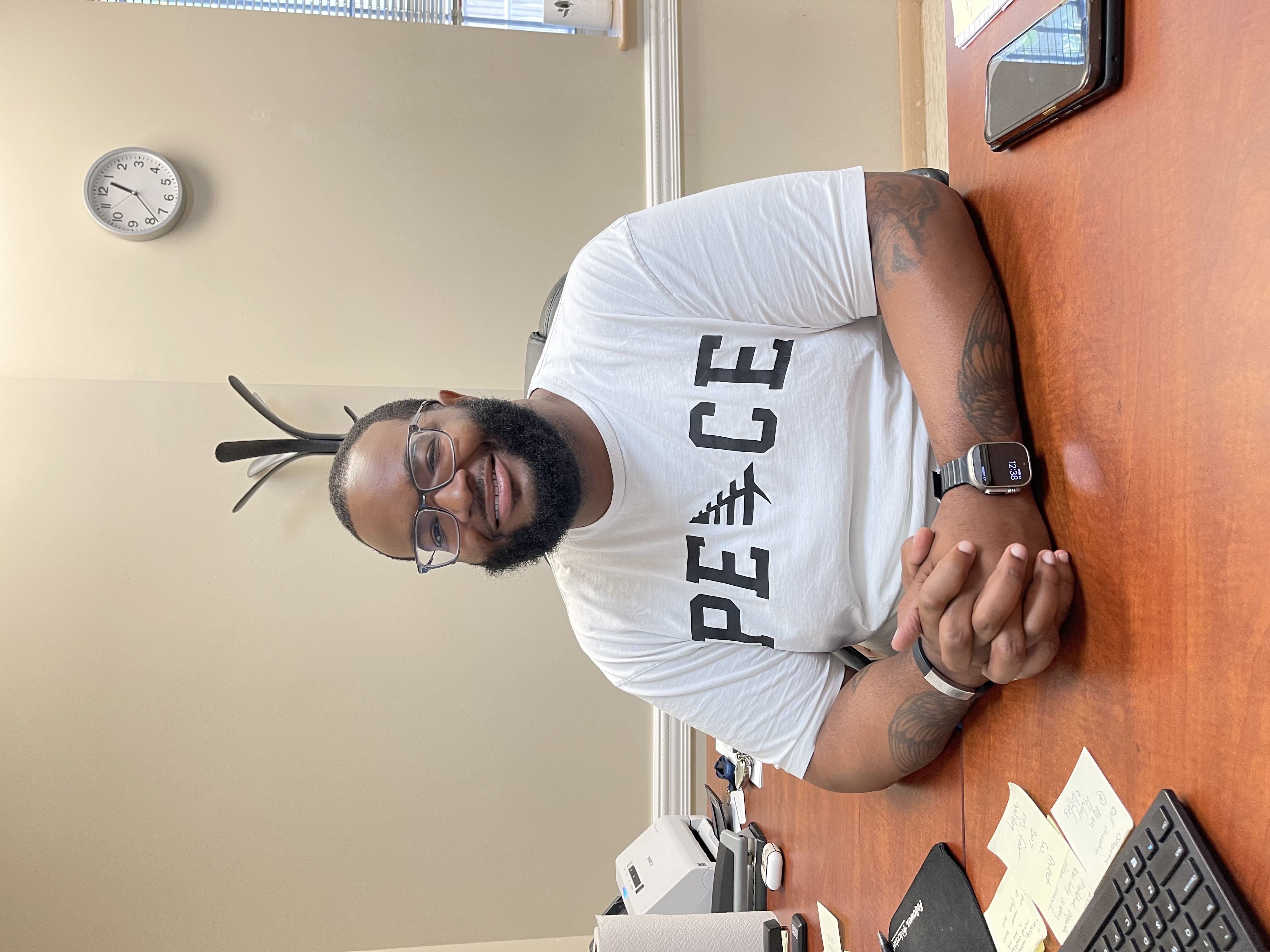
This is Marlon. He is a Program Director at WellLife Network and has worked in the organization for two years.
Marlon began his work as a case manager in WellLife’s Island House location. Today, he is a Program Director for WellLife's Dewitt residential location, overseeing the residence and ensuring the accuracy and timeliness of treatment plans and operations. In his own words, he says, "My role is to maintain the building, ensuring that the treatment plans are accurate and promptly executed."
WellLife’s residential housing programs and support services, located throughout New York City and Long Island, offer supportive environments to more than 1,000 individuals and families with mental health challenges, developmental/intellectual disabilities, seniors, and formerly homeless individuals. Dewitt is a mental health and mixed-use residence, one of several mixed-use buildings under WellLife’s aegis.
As a Program Director, Marlon interacts daily with all the tenants,. “I think the biggest challenge in working with the individuals is earning their trust. They’ve been through a lot, especially coming out of COVID-19.” Tenants often turn to Marlon when seeking treatment support or someone to talk to.
Many tenants may require assistance in resource identification and acquisition, relying on Marlon and his staff to fulfill their needs. Financial and treatment management can be overwhelming for some, and Marlon recognizes the importance of simplifying these processes by bringing services directly to the residence. He explains, “We work with the clinical teams to come down and offer these services. We also teach financial literacy here: it is a budget breakdown, helping the individuals assess their own budget based on their personal expenses.” Although these steps may seem small, they empower individuals to become more self-sufficient and responsible for their finances.
Marlon's approach as a Program Director is goal-oriented, aiming to achieve continuous progress. He states, "We are consistently working to make improvements. Once we reach one goal, we move on to the next." Marlon also emphasizes teaching practical skills such as opening a bank account or filling out a money order. He sees himself as a bridge between clients and the challenges they face.
He has witnessed numerous individuals making progress. For instance, some who used to keep to themselves have taken steps to become involved in the building's events and committees. “Every month, I or another staff member go door-to-door with flyers to promote the building's monthly meetings. If they choose not to attend, we inquire about how we can facilitate their participation. We provide snacks, food, and refreshments to ensure their comfort during involvement.”
While many Dewitt residents rely on Marlon for daily issues, his goal is to foster self-reliance. “I think success is when a client is genuinely happy, when things are going right in their life, or when they can manage their daily life. Of course, everyone is going to have their ups and downs. Individuals will go through things with family, their health, or even their mental health, but when the clients learn to maintain themselves or how to wake up feeling content daily, I think that's success.”

This is Patricia. She is a Program Coordinator for the Care Coordination division at WellLife Network. She has been at WellLife for 15 years.
Patricia began her work as a Case Manager, providing support and assistance to individuals or groups in need, helping them navigate the complex healthcare systems, access resources, and achieve specific goals. Soon afterward, she advanced to the position of Senior Care Coordinator. Today, she is a Program Coordinator with a caseload of 25 clients and a team of 8 Care Coordinators under her supervision. “I put more emphasis on the staff than the work, and that has worked out very well for me. I have extremely well-trained staff who know what to do and who can think on their feet to manage their caseloads,” said Patricia.
As a Care Coordinator, she works closely with individuals who need extra support and those who want to be heard: “we see a lot of people who just don't have the basics and we get them through whatever they are going through.” For Patricia and her team, it is essential to give their clients autonomy and help them feel that they are in control of their lives.
Pat and her team also oversee the food pantry at their Huntington location. They stock and distribute food every week for individuals who are food insecure. To many community members, the pantry is a critical tool when they do not have enough. To others, the pantry supplements the government assistance they already receive. Unfortunately, there are many cases of individuals who receive government assistance not receiving enough to feed their families. Beyond foodstuffs, the pantry also provides needed goods such as baby formula and diapers, feminine products, pet food, and more that are not usually thought of as “food pantry” items.
“Food insecurity can happen to anyone at any time. We know an individual who was well off, had a great job and a great life, and never thought he would need anything from here, but he was in a terrible accident that severely affected his mobility. He can’t believe it has come to this, but he’s glad there are places like WellLife that help him in ways he no longer can help himself.”
While Suffolk County is known for its affluent neighborhoods, significant economic disparity exists in places like Huntington. Shame is one of the biggest reasons people hesitate to seek services: “There is no shame in coming in when you need food; this is a safe, non-judgmental space. No one should ever feel ashamed for seeking basic needs,” says Patricia. She would love to see more people use WellLife's resources without fear of stigma.
During her 15 years at the organization, Patricia has seen a lot and helped many individuals in their daily lives. She attributes her success to the services WellLife Network offers. In the Care Coordination division, “we are a one-stop shop. We offer food, services, events, and even medicine, thanks to our pharmacy.” A few individuals still in the program credit their progression to Patricia and her team: “Sometimes we help people that are not even in the program because that is just what we do.”
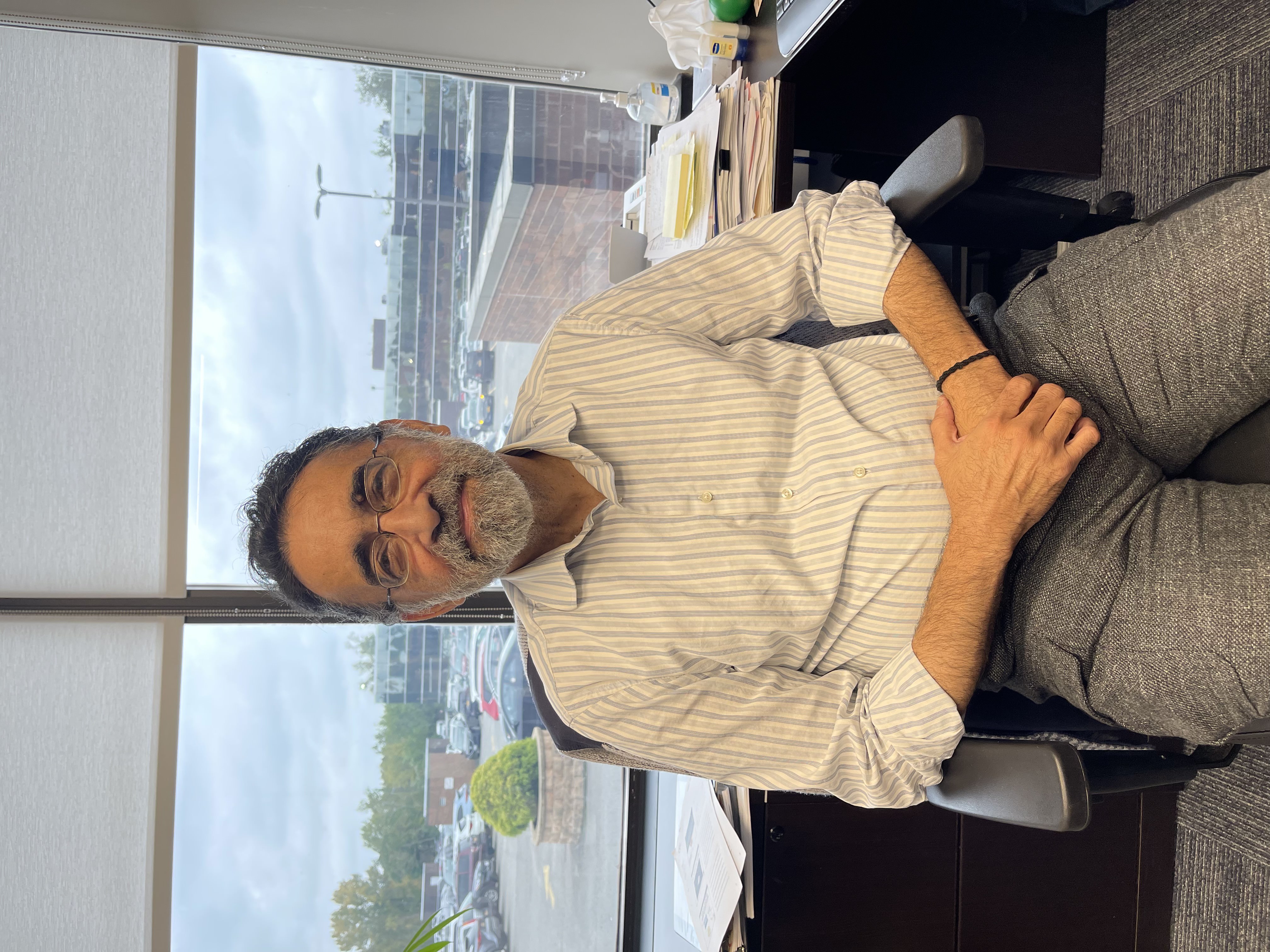
This is Dr. Banilivy. He is an experienced clinical psychologist and the VP of Education, Training, & Client/Staff Wellbeing at WellLife Network (WLN). He has been at WellLife Network for the past 35 years in various capacities.
In the early part of his career, Dr. Banilivy focused on providing individualized treatment for individuals of all ages suffering from mental illness.
Dr. Banilivy began his professional career in Boston, starting with a specialty fellowship working with couples, families, and those with psychosomatic conditions, including eating disorders, in both in-patient and out-patient settings. "In working with individuals who have difficulties in functioning, we always have to consider family of origin—it begins with understanding the family unit."
Shortly after his fellowship, he joined North Shore Hospital as a psychological consultant to pediatric specialties, including co-leading an adolescent eating disorder program. Subsequently, he joined WLN.
During his time at WLN, Dr. Banilivy has been involved in developing several programs, serving in a leadership capacity; in addition, he collaborated with NYSOMH to implement a school-based mental health program in several school districts. These programs allowed Dr. Banilivy to reduce silos and promote partnerships and collaborative work with multiple agencies and entities, government and otherwise. "The school projects became a highly effective program because families did not have to run around looking for services; they were all housed in one building—the school." His partnership with various schools and school organizations continues to this day.
He was also part of a committee that oversaw psychiatric emergency departments with the purpose of advancing collaboration with CBOs and schools. "I learned a great deal while serving in that capacity, and I am glad I was able to be part of the advancement of the mission of reducing referral of individuals to the emergency rooms, both adults and children.”
In his many years representing WLN, he recalls a specific time the Board of Education invited him to speak to school administrators following a crisis event. "The question we wanted to focus on was: how do we help youth as well as the families and adults cope with this unfortunate and tragic event."
While there is much work to be done in the field of mental health, Dr. Banilivy believes that everything begins with primary prevention, educating young people about the importance of emotional health/mental health.
“As a society, we must prioritize mental health and address stigma and myths about mental illness. The youth need to be able to identify how their emotions affect their functioning and how to deal with stress in a healthy manner. I think that as a foundation, we should continue to teach about mental health like we teach about physical health."
Today, he supervises and develops evidence-based programs.
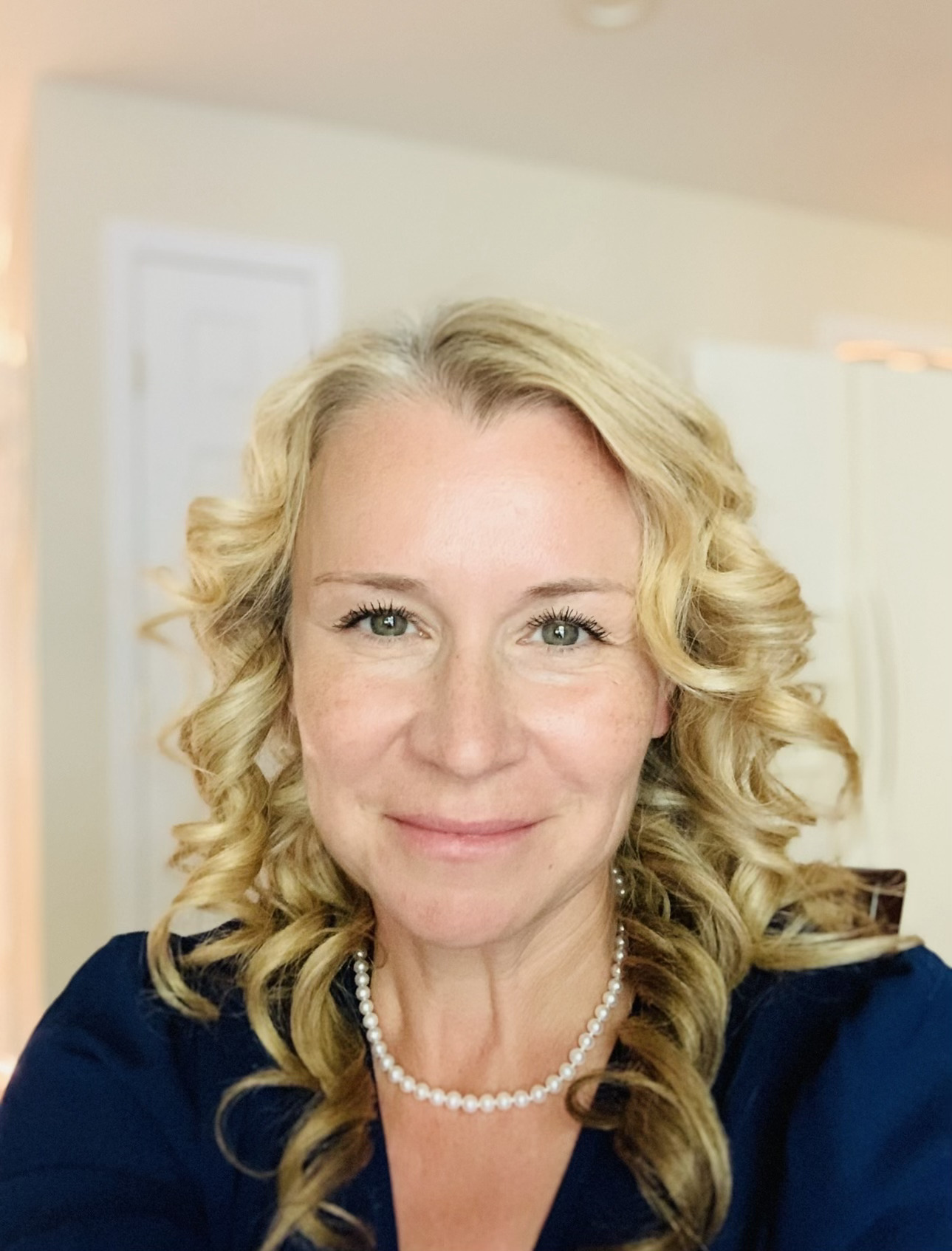
This is Elena T. She works at WellLife Network as a Program Director of the Youth Community Residence.
She manages an 8-bed community residence for youth aged 12-17. “Kids live here 24/7, so my job is to ensure that everything goes smoothly, not only with their transition to the residence but also with their stay.” The kids who live in the residence are enrolled in a program that teaches them coping skills and provides support to them. Elena also works closely with the families of the youth in a family-guided informed care program with the focus of reuniting the kids with their family members. “The kids come here because they need a more supportive environment, something that, at times, their family cannot give them,” said Elena.
All referrals come from the Children’s Single Point of Access (SPOA); a program that helps providers connect people with serious mental illness to mental health services that can accommodate them. They receive referrals from hospitals, psychiatric facilities, or various programs in the school district. Once screened, they are invited to visit the community residence to ask any questions they have about living there, the programs offered, and/or if the community residence is the correct level of care that is appropriate for them.
In most cases, the referred youth have already tried different services, such as counseling or in-home services. When they are deemed unsuccessful, that is when WellLife Network steps in. “There are kids that have a lot of physical and mental trauma, so when they are not very trusting, which is completely normal, we work with them from the ground up,” Elena said. Unfortunately, there are also those who never open up, but Elena and her team keep on trying.
One story Elena recalls is that of a very timid 17-year-old youth who came into the residence and did not want to talk to anyone for a very long time. The team worked with that youth day after day. “We started with basic conversations about going out into the community, doing things together. It could be as simple as a board game, but the purpose was to try to find some common ground.” Soon, the youth was confident enough to begin establishing his own life as a young adult. Occasionally, they still come around the residence to speak to the staff and even serve as role models to other youths.
“I've been working in this field since 1999. At first, it was very stressful,” Elena says. “I had to figure out how to manage since I was very emotionally involved in the kids’ lives. I didn’t want to get burnt out. It was challenging, trying to find that spot where I felt confident enough to continue with my own life, but I learned that the kids teach us, and we teach them. I believe working in this setting is one of the most amazing experiences I have ever had.”

Yom Kippur, the Day of Atonement, holds profound significance in the Jewish faith as a day of reflection, repentance, and spiritual renewal. It is a time when Jewish communities around the world come together in solemn observance to seek forgiveness for past transgressions and to set intentions for a better future. As we acknowledge Yom Kippur, we recognize the enduring values of forgiveness, compassion, and self-examination that it represents. This sacred day serves as a reminder for people of all backgrounds to reflect on their own lives, to seek reconciliation and healing where needed, and to strive for greater empathy and understanding in our shared human journey.
We extend our warmest wishes to all those observing Yom Kippur, praying for a meaningful and introspective day of reflection and reconciliation. G'mar Chatimah Tovah.
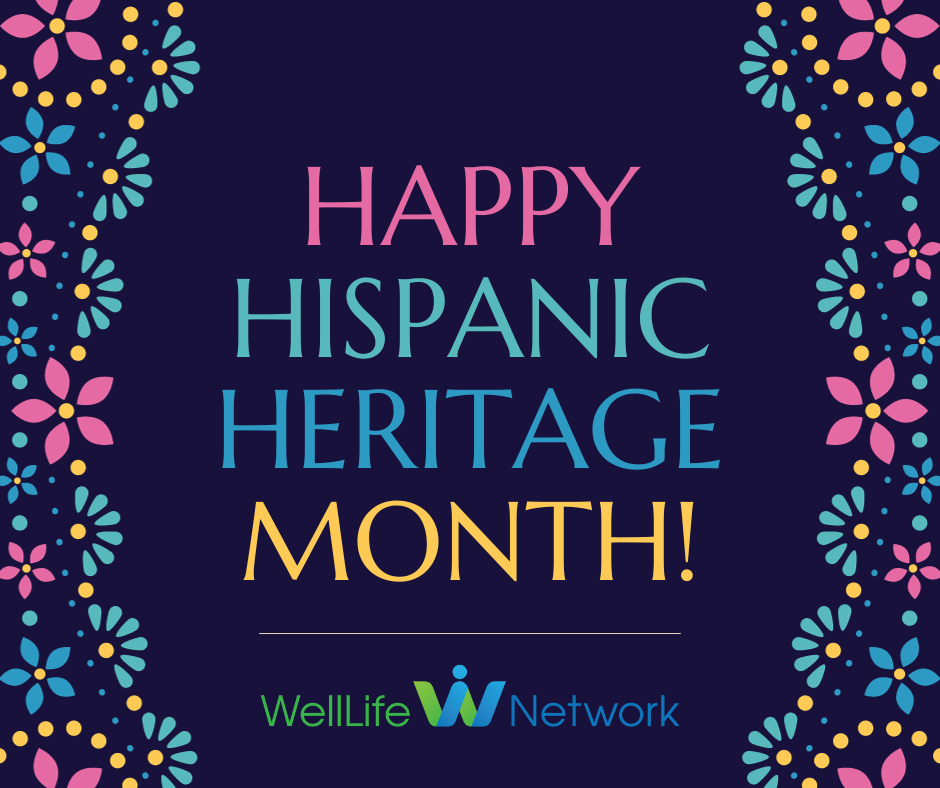
Each year, Americans observe National Hispanic Heritage Month from September 15th to October 15th, celebrating the rich histories, diverse cultures, and invaluable contributions of Americans with Latin American or Spanish heritage.
The DEI Committee would like to take a special moment to acknowledge the immense contributions our Hispanic colleagues have made and continue to make here, at WellLife Network. From Peer Specialists to our Management team, our Hispanic colleagues bring a unique cultural perspective that is matched only by their unwavering commitment to representing and serving our Hispanic communities, as well as communities of various cultures. The DEI Committee joins the people we serve in saying, ¡MUCHAS GRACIAS!
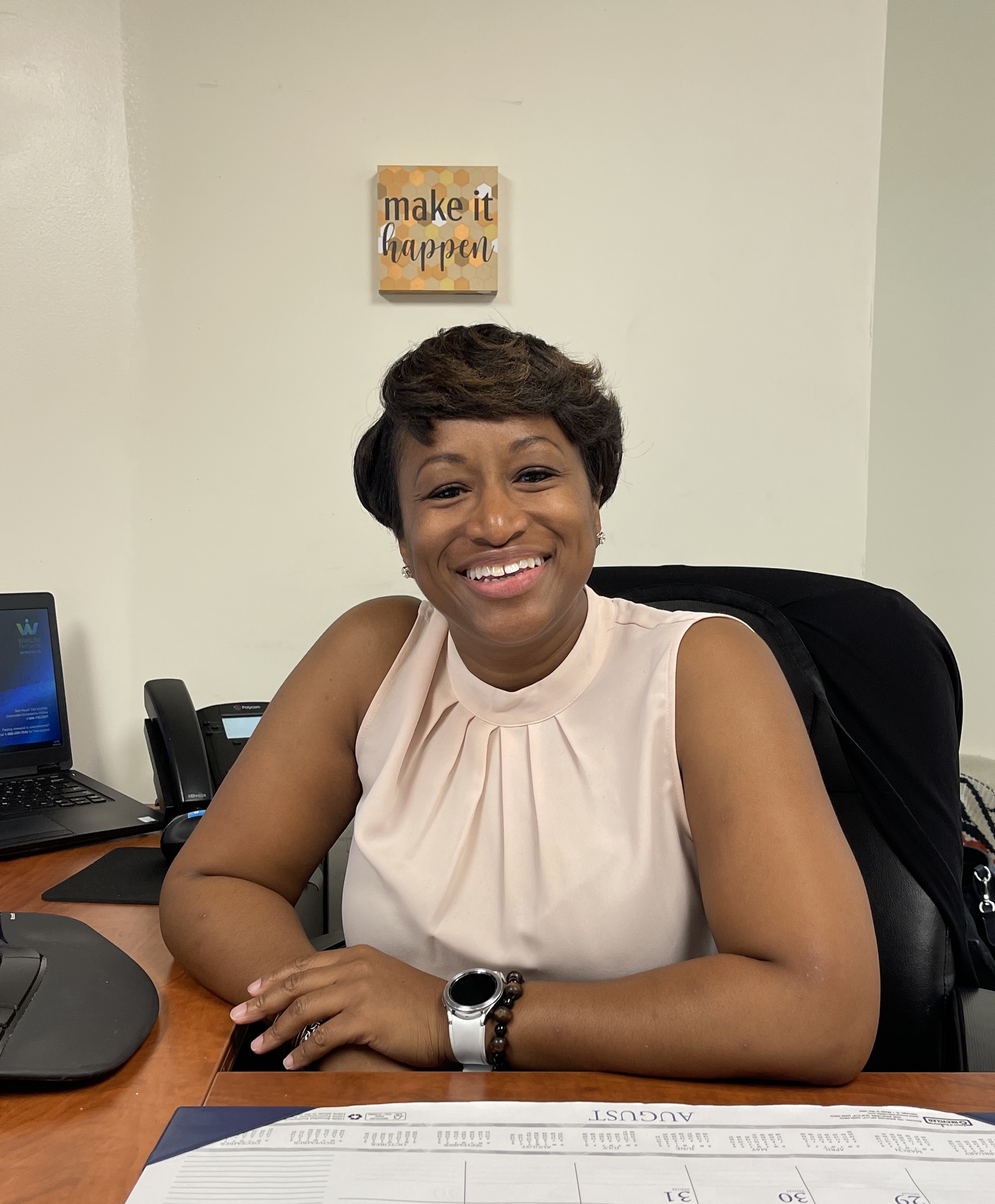
This is Dominique. She has been with WellLife Network for 14 years and was recently promoted to Program Director of Supported Housing.
Dominique started her career as a case manager at WellLife Network. She spent six years in that role, assisting individuals on a case-by-case basis. Today, as the Program Director of Supported Housing, she oversees 26 case workers and 4 Supervisors—a significant leap from her previous team of nine when she was a Senior Program Coordinator. "The transition has been fairly seamless," Dominique says. "The only real challenge has been managing a greater number of cases."
WellLife Network’s Supported Housing Division is a field-based program with scattered sites across Brooklyn, Queens, the Bronx, and Manhattan. Caseworkers visit individuals in the field either monthly or as needed.
The role of case managers is multifaceted. They monitor various aspects of their clients' lives—from overseeing individuals’ medication to re-engaging in clinical services to promote wellness. They also maintain constant communication with each individual and even speak to their families during crises.
"Emergencies can happen at any time," Dominique notes. In instances where an individual goes missing, case workers must follow proper protocol, which involves alerting both the family and the authorities.
Referrals for Supported Housing are directed to the Intake Department. Most of the referrals come from in-house, shelters and hospitals. The team carefully reviews these referrals and applications to select the most suitable candidates.
"We had one individual who struggled to adapt to their new apartment and was constantly facing issues," recounts Dominique. "We relocated that individual, and since then, they have been thriving—a testament to the importance of meeting people halfway."
Dominique also shared a memorable experience: "Years ago, I handled a case involving an individual with a severe hoarding problem. Everything they kept reminded them of their late parents. We established a program to help them declutter, and they made noticeable progress. To incentivize them further, I promised new furniture if they could clear out the space completely. This really motivated them to maintain a clean living environment."
"We help set goals and work collectively to achieve them," says Dominique. "Success isn't guaranteed, but that's what we're here for. I encourage them to see failures not as setbacks but as pauses—opportunities to regroup and move forward. Each story’s outcome depends on the individual involved."

By: Jodie Dionne
“Far from tragic, disability is a part of the human experience.” Disability Pride Month commemorates the passing of the “Americans with Disabilities Act of 1990.” It has been celebrated worldwide to recognize people with disabilities, their identities, culture, and contributions to society. Disability Pride Month shines a light on every human living with a disability and how they have found triumph and a sense of identity in their lives. Every human has the right to experience a life free of stigma and prejudice, with the full support of their society.
People with disabilities make up about 15% of the world’s population, this month celebrates every one of those individuals, and the DEI Committee proudly stands with them.
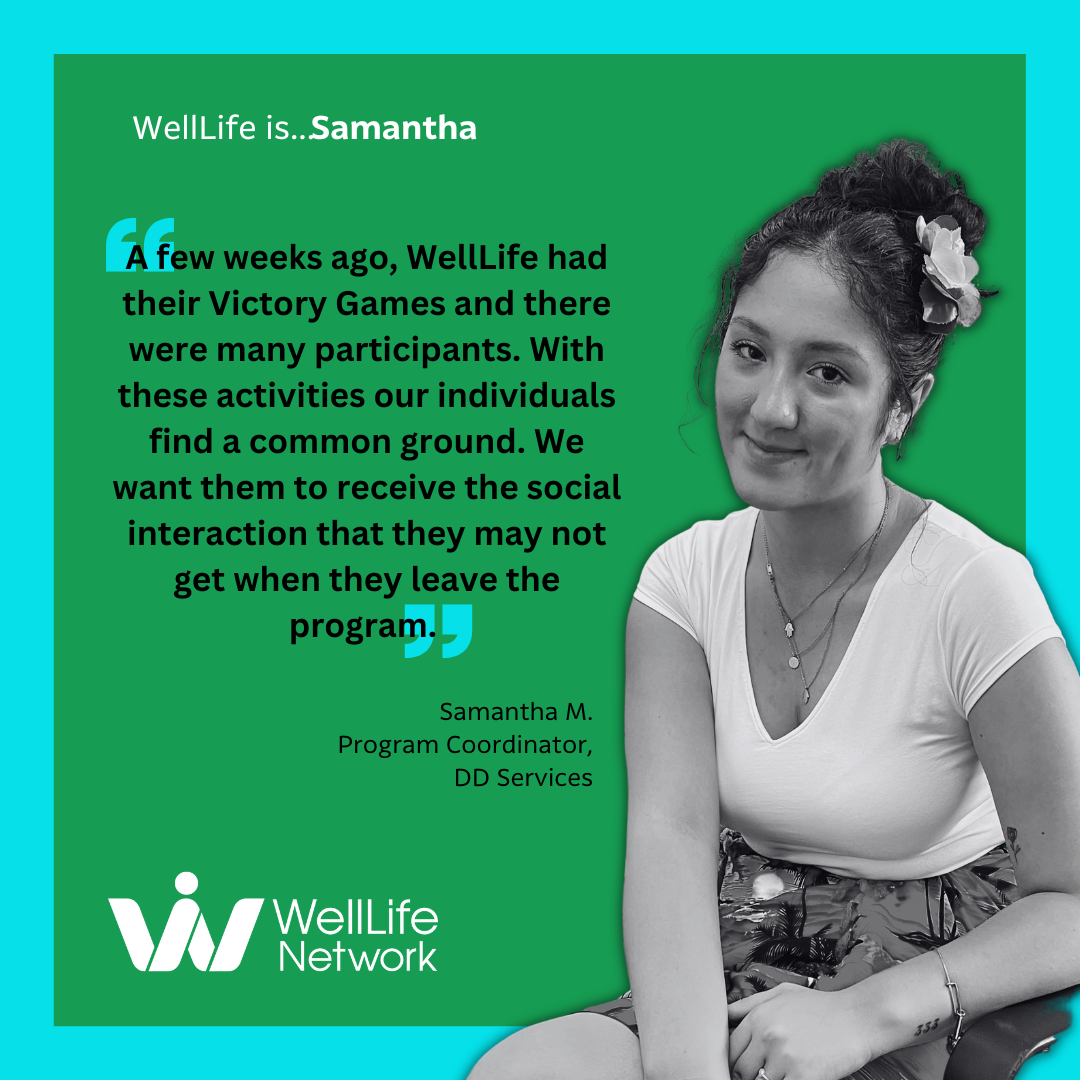
By: Deborah Cruz
At ten in the morning the Station Road parking lot had been transformed to a Hawaiian destination, with palm trees and a snowcone tiki bar. Most of the individuals were seated patiently waiting for the burgers to hit the grills, while others had already began dancing and vibing to the music. The entire event had been put together by few people Syndey, Jennifer, and Samantha, Program Coordinator of DD Services.
As a Program Coordinator, Samantha, works 1-on-1 with WellLife’s individuals to make every activity they do therapeutic. “I work with all individuals, for example, if an individual is non-verbal, I will them to engage in a conversation,” said Samantha, “I try to put a therapeutic experience to everything they do.”
Samantha, who graduated from St. Joseph’s University, said she wanted to work at WellLife after she volunteered. “When I was in school, I learned about disabilities and mental health it really encouraged me to take this route,” she said, “I volunteered here during COVID-19, I led many activities through ZOOM.” During the lockdown, many of the physical activities and resources meant help those at WellLife were transferred over to online services. Only recently has there been more in-person events and physical activities.
The Rego Park native mentioned that challenges that come with the work, “being a new person coming in, the individuals are not used to me, so they are not as open with me as opposed to a staff member who has been here a long time.” She stated that some individuals need to be engaged before they speak to her, which could be difficult at times. “I’ve gotten to know a lot of them and they’re slowly opening up to me.”
While Samantha works 1-on-1 with the individuals, she also works in group settings and is heavily involved in planning events for her sites. Recently, she helped come up with the “Luau End of Summer Bash” an event that became a big hit among the individuals. The purpose of the events is to get the individuals out of their day-to-day schedule, it drives them to practice their motor and cognitive skills while interacting with others in a more social setting. “With these activities the individuals find a common ground. We want them to receive the social interaction that they may not get when they leave the program,” Samantha explained.
One important aspect of recreation is community engagement and for Samantha it is a priority, “a few weeks ago, WellLife had their Victory Games and then their international day, those were two really big events, I’m glad we are bringing the community back together” Samantha said, “we focus a lot on the individuals, but it’s important we don’t forget the community aspect of it.”






